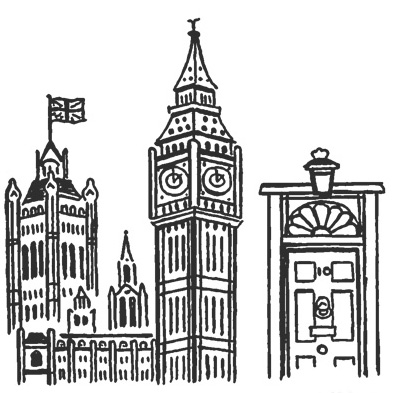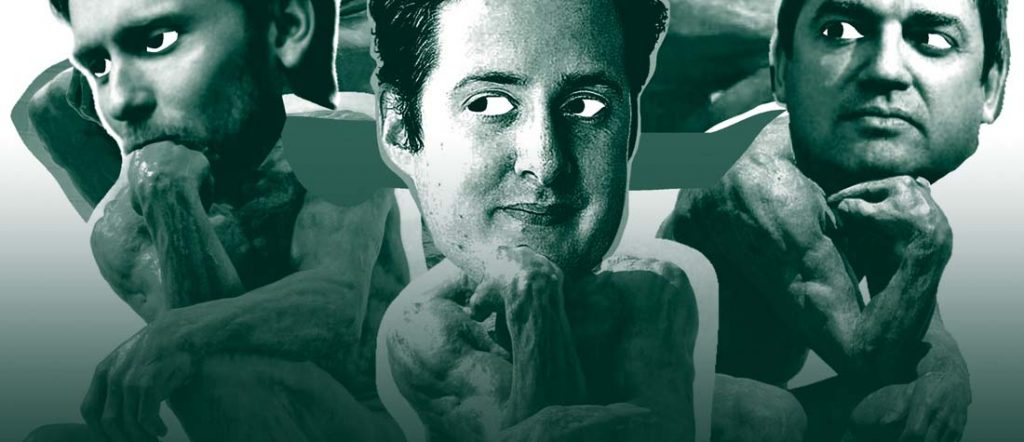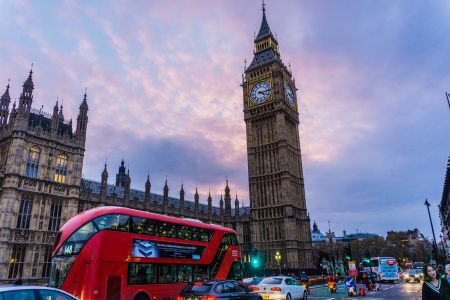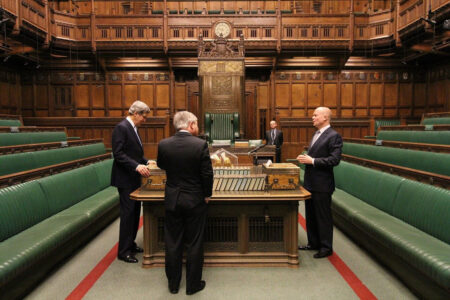The most successful think tanks anticipate the public mood. The Centre for Policy Studies (CPS), in the 1970s, and the Institute of Public Policy Research (IPPR), in the 1990s, responded to it, reframed the debate and brought Margaret Thatcher and Tony Blair into Downing Street.
Last year, think tanks and their alumni across the political spectrum took charge of the manifestos of Labour and Conservative. The Conservative manifesto was authored by Robert Colvile, the director of the CPS, Rachel Wolf, a fellow at the CPS, and Munira Mirza, the former director of development at Policy Exchange (PEx) and now head of No 10’s policy unit. And the Labour Party’s manifesto was heavily influenced by the Institute for Public Policy Research (IPPR) and the New Economics Foundation’s (NEF) work on economic justice and the environment, as well as Autonomy’s work on the four-day week.
The Institute for Economic Affairs (IEA) and the Legatum Institute exerted significant influence over the direction of the government’s Brexit policy and the former could boast of 14 contributors to their initiatives being in government. And on the left, Common Wealth, set up by former IPPR-er Mathew Lawrence, gave voice to Corbynomics.
With Covid-19, think tanks have faced a new series of challenges. It is yet to impact think tanks financially – after the financial crash in 2008, it took some think tanks as much as three years to feel the squeeze – but it has impacted their research. Long-term projects are being substituted for research into policies that “needed to happen yesterday”, said one prominent think-tanker.
Furthermore, the low cost of each interaction – with the public or politicians – granted by social media and accompanying technologies has given them scope to follow their American cousins in becoming their own broadcasting corporations, says Mark Littlewood, director general of the IEA. The unprecedented times we live in have given think tanks more prominence.
The Right
With the Conservatives in power, the focus of policy-minded right-of-centre think tanks such as PEx and the CPS is on personal connections with politicians.
Graduates of the CPS’s New Generation (NG) project, “designed to harness the talent, energy and enthusiasm of a new breed of policy thinkers”, are dotted through senior posts. They include the deputy and vice chairs of the Conservative Party (Lee Rowley and Andrew Bowie), Helen Whately, minister of state for social care, and Simon Clarke, the former minister of state for regional growth and local government. Each of these contributed to the NG’s New Blue: Ideas for a New Generation, which embodies the CPS’s technology-focused, growth-minded attitude towards economics. “Levelling up”, Boris Johnson’s favourite phrase, may well originate from them. In his book, The Great Acceleration, published in 2016, Colvile sang the praises of technological progress – in which even speed-dating is a plus, apparently.
The recent CPS papers ‘After the Virus’, ‘Platforms for Growth’ and ‘Global Britain’ all speak to this innovation agenda by relaxing regulation, streamlining small business through better use of tech and encouraging overseas investment with e-citizenship schemes.
Exchanging views
Beyond Munira Mirza, PEx alumni in and around government include John Bew, spad for foreign policy, the Union and the backstop, Andrew Gilligan (infrastructure and digital) and Rupert Reid (spad to Grant Shapps in Transport). And let’s not forget Rishi Sunak.
The government also appointed Jack Airey, the former head of housing at PEx, as the PM’s latest advisor, and are using his paper, ‘Rethinking the Planning System for the 21st Century’, as the basis for their planning reforms.
Like the government’s adoption of PEx’s “muscular unionism” and the inquiry into the power of the supreme court, inspired by findings from their paper ‘The Law of their influence is on the margins of policy, much like chancellor Rishi Sunak’s plans for freeports, which he first outlined in a paper written for the CPS in 2016.
The influence on policy lacks the totality of that of the Centre for Social Justice (CSJ) during the Cameron administration, who produced the welfare reforms that became universal credit.
Socially minded
As a more politician-focused think tank, the CSJ tends towards working across the house, with less focus on the media. Iain Duncan Smith, their founder and chairman, works closely with Carolyn Harris, Keir Starmer’s PPS on gambling, and has close links to the Strengthening Families Manifesto, which is headed by Fiona Bruce MP and Lord Farmer and is supported by 60 MPs and ten lords.
The CSJ may not pull the strings as they once did, but they are still foremost in terms of social policy research on the right. Not technically partisan, their conservative stance on the family puts them in touch with many on the government benches. With the passage of the abortion and divorce reforms this year, their influence seems on the wane.
But as we wait to gauge the full impact of the lockdown on the family unit, their paper ‘Family Structure Still Matters’, a response to the divorce laws, may yet reframe the debate.
The free market influence on the right is a strong one – with a solid representation of believers in high office – embodied by the Adam Smith Institute (ASI) and the IEA.
After last year’s election, the IEA could boast of 14 alums in the government. Like the CPS, the “get ’em while they’re young and hungry” approach worked well. The authors of Britannia Unchained: Global Lessons for Growth and Prosperity, a book launched at IEA’s head offices – Dominic Raab, Priti Patel, Chris Skidmore, Kwasi Kwarteng and Liz Truss – have occupied crucial ministerial roles. Indeed, Truss’s recent meetings with the IEA – classified as private discussions – show the proximity they have to the highest echelons of power.
For these think tanks that look to the long-term with the aim of reframing the debate, “elections are acts of God,” says Mark Littlewood, the IEA’s director general. The focus is more ideological. The purpose, as Milton Friedman put it in 1982, is “to develop alternatives to existing policies, to keep them alive and available until the politically impossible becomes the politically inevitable”.
Edging to victory
The ASI’s chief executive Madsen Pirie has said that they propose things that at first are thought of as the “edge of lunacy”, which then become the “edge of policy”. Their campaign to extend political rights to the citizens of Hong Kong, which they have pushed for decades, has come to pass. For years they have beaten the CANZUK union drum – now with the pressure of Brexit and the coronavirus lockdown it has grabbed media attention.
They and the IEA, who have led criticisms of Public Health England and other state organs that handled the virus, have got their wish. Public Health England is gone.
If the success of the ASI is down to persistence, the influence of the IEA is down to their media presence and their connections in government. While it has a budget of £2.5m, it estimated the value of its media appearances in 2017 at £66m.
The connections of PEx and the CPS in the media is not to be taken lightly either. Dean Godson, the director of PEx and one of the best connected men in Westminster, according to one centre-right think-tanker, was able to get US secretary of state Mike Pompeo to make his only public appearance of his visit to the UK earlier this year at a Policy Exchange conference.
Meanwhile, Robert Colvile’s background in journalism as the comment editor for the Daily Telegraph and Sunday Telegraph, and now editor-in-chief of CapX, an online publication founded by the CPS, helps to give his organisation’s research broad coverage across the media.
The Left
As the current Labour leadership under Keir Starmer is yet to take a firm direction, the influence of left-wing tanks on the party and the government is hard to gauge. Until the party stakes a position, left-wing tanks are living in an echo of the last five years, while the right press their advantage with good connections in and with the cabinet.
The language of innovation and steps forward is at the heart of the success of these think tanks. Easier done when your side of the political spectrum is in power than not, but similar feats have been achieved by the left-leaning Institute for Public Policy Research.
Green agenda
IPPR’s work last year put them front and centre of the climate debate. They made a considerable impact on the manifestos of last year, including the student visa for the Tories and numerous policies on Brexit, the environment and welfare. And as a devolved outfit, with branches in Edinburgh, Manchester and Newcastle, they can take the lead in the debate on the prime minister’s levelling-up agenda in devolved and local political centres.
Their environmental justice commission is chaired by Caroline Lucas, has had contributions from Ed Miliband and has pioneered demands for a green recovery from coronavirus.
But poised to take the green girdle is the New Economics Foundation. They have published extensively about how a green recovery might look, taking into account stimuli for planning and infrastructure. Only recently they embarrassed the Bank of England for their carbon-heavy quantative-easing recovery.
Policy-minded think tanks like NEF and the Centre for Social Justice pursue what a senior member of NEF described as a twin-track system, a combination of policy and coal-face expertise. Change can happen on the ground without policy. Working with networks of local charities and organisations, they can get a sense of the reality of policy beyond the Westminster bubble.
Lingering Corbynism
In the last five years, left-wing think tanks adapted to the messaging of Jeremy Corbyn. Grace Blakeley, a staff writer at Tribune and former senior IPPR-er, asserts that the most important part of their work was to shift the “Overton window” – make previously unthinkable ideas acceptable.
IPPR and NEF have kept a hold of the political debate and are tackling the government on their own ground. Tanks such as Autonomy, which framed the four-day working week, championed by John McDonnell, and Common Wealth, which also has close ties to McDonnell, and on whose board Ed Miliband sits, are still working within the framework of Corbynism.
That said, the revival of the four-day working week, in a paper published in June, has the potential to gain traction as many show reluctance to return to full-time work.
The Fabian Society, the oldest think tank in the UK, was out of favour with Corbyn’s Labour, but with the left of the party silenced after last year’s election failure and the rise of Starmer, a member of the society’s executive committee, it may yet return to prominence.
Policy measures
In spite of the difficulties and lack of party framework for left-wing think tanks to work with, they are proving particularly influential in the media. Miatta Fahnbulleh, NEF’s chief executive, maintains a strong public presence, particularly on broadcast channels.
The Resolution Foundation (RF) lacks an ideological position, but is broadly left-leaning. It keeps a steady measure of the living wage, the number of furloughed workers and the extent of the economic impact of Covid-19
Its research highlights inequalities in policy. Its recent paper on housing costs looked at the disproportionate impact of Covid-19 on private renters. A new paper, ‘Enrol up!’, found that one in 20 workers is missing out on pensions, while one in four women is ineligible for auto-enrolment pensions.
RF chief executive Torsten Bell is a former senior advisor to Ed Miliband whose Observer column is a key outlet for RF’s research.
ONWARD
A major up-and-coming think tank on the right is Onward. Founded in 2018, their growth-minded outlook is tempered by hints of social justice – they “exist to make Britain fairer”.
Their founder-director, Will Tanner, was a policy then special advisor to Theresa May at the Home Office, before following her to Downing Street to become the deputy head of her policy unit (2016-17). He comments regularly for the media, has a column in i and hosts Onward’s online events. Since he left No 10, he became a chief policy advisor at major comms company Portland, before founding Onward. He also worked for the public service think tank Reform. He is backed up by a formidable chief advisory board which is chaired by Daniel Finkelstein, former speechwriter to David Cameron and Times columnist. Numbered among its other members are Neil O’Brien, the former director of PEx and Open Europe and former spad to Theresa May turned MP, and Baroness Fall, who served as deputy chief of staff for David Cameron, now a partner at PR firm Brunswick.
Onward’s influence on policy is not as clear as the likes of PEx or Bright Blue, but they have notched up some notable media success, coining the terms red wall and Workington man in the build-up to the 2019 election. And they are building to more – they recently hosted the chief secretary to the Treasury Stephen Barclay’s first policy speech, in which he unveiled the Treasury’s plans to accelerate change in government, in line with Cummings’ attempts to streamline the civil service machine.
Their recent paper “Levelling up: Rebalancing growth-enhancing spending” has Onward’s productivity message at its heart. It suggests a rethink of the distribution of government investment in the UK and challenges the peculiarity of how the areas with the highest spending on productivity in the UK are those that are the most productive. A fairer distribution of investment across the regions will appeal to Conservative high command as they seek to cement the conversion of the red wall.
FUNDING
In May, Peter Geoghegan, the investigations editor at openDemocracy, published Democracy for Sale, a look at how dark money has influenced the political system. It is an attack on the corporate interests that fund right-wing and libertarian lobbies and think tanks around the world, particularly in the US and the UK.
Broadly speaking, left-wing think tanks are more transparent, in terms of funding, than the right. IPPR and NEF are open about who funds them, listing their income and donors on their websites. The right aren’t so much, preferring to protect the privacy of their donors.
Think tanks such as the Henry Jackson Society (HJS) and those right-wing think tanks based out of Tufton Street – the CPS, the Taxpayers Alliance and the ASI, along with the IEA, some of whom have links to the Atlas Network, a group of 400 or more think tanks around the world committed to promoting free-market economic policies – have come under particular attack for their lack of transparency.
The HJS are shown to have received money from the likes of the “anti-Muslim” Gatestone Institute, founded by Nina Rosenwald, an heiress to the Sears Roebuck fortune.
The IEA have received money from gambling interests and in a recorded undercover interview, their director general admitted that they would take money from companies in fields that they were researching, but would “stop short of” reaching their desired conclusion. And when asked about how much money the tobacco lobby contributes to IEA causes, the director general said: “Not nearly enough.” (An estimate in 2018 suggested that it received £40,000 of its £2.5m turnover from British American Tobacco).
While more funding can increase content and coverage, it does not dictate the direction of think tanks. But private think tank events – drinks and dinners – that bring together members and donors, do permit an impressive degree of access between donors and ministers.
TOP 5 think tanks in Brussels
Brussels think tanks are tied into the political system. Most receive funding from the EU commission and agencies or the member states.
Political foundations (pf)receive funding based on the representation of their affiliate parties in the EU parliament.
Broadly, they can be split into centralist and devolutionary camps. One senior Brussels think-tanker said of the culture that 90 per cent of what think tanks do in Brussels is behind closed doors.
Subsequently their influence lies in their personal and political connections rather than their media coverage. Brussels tanks have budgets that pale in comparison with their eight- or nine-figure American counterparts but they are significantly better funded than those in the UK.
In 2020, these are the most influential think tanks operating from Brussels.
Bruegel
Alignment: Centralist, independent
Director: Guntram B Wolff, who regularly testifies at ECOFIN meetings and is a member of the IMF advisory group on surveillance.
Research: Economics
and trade
Funding: €3.5m (2018) Donors listed on website: funded by 19 member states and corporations including Google, Facebook, HSBC
Amazon, Huawei).
The Centre for European Policy Studies
Alignment: Independent
Director: Daniel Gros,
adviser to the European parliament, co-authored
the study targeted to
design the euro.
Research: Broad. It’s research remit mirrors the EU commission’s core directorate.
Funding: €5.9m (2018-19 report) (donors listed on website: 42 per cent from EU commission and EU agencies, 21 per cent from membership and the rest from foundations and various national governments).
Wilfried Martens Institute
Alignment: Centre-right. It is the political foundation of the European People’s Party parliamentary group (EPP.)
Director: Tomi Huhtanen, political then senior advisor for the EPP.
Research: Trade, defence, migration and a strong media presence on technology.
Funding: €1.9m (2018) (donors not disclosed)
New Direction
Alignment: Conservative – it’s the pf for the European Conservatives and Reformists.
Director: Tomasz Poręba, MEP for Poland’s Law and Justice Party. New Direction’s executive director Naweed Khan, former advisor to Daniel Hannan, has strong links to the Sweden Democrats, the Law and Justice Party and right-leaning American think tanks.
Research: Transatlantic relations, economy Covid focus) and independence of member states.
Funding: €680,583 (2018) (donors not disclosed)
European Council on Foreign Relations
Alignment: Independent
Director: Mark Leonard has a long history in the think tank world, having set up the Foreign Policy Centre under the patronage of Tony Blair. He advises governments and leaders on global issues and the future of Europe.
Research: Foreign affairs, pandemic politics and response, unity of Europe
Funding: €7.3m. In 2017, a third came from Open Society Foundations, 10 per cent from Stiftung Mercator and the rest from European and Japanese governments.
Top 10 think tanks in Washington
There are more think tanks in America than in any other country in the world – there are 1,800 nationwide and 400 in Washington alone. While think tanks in the UK have in the region of a dozen staff, in Washington, they employ hundreds. The libertarian Cato Institute alone employs over 150 scholars and over 40 administrative staff.
The priority for Washington think tanks is articulation of message. As much as 50 per cent of their budgets is dedicated to communications and media. Many have media offshoots set up as 501(c)(4) organisations, like the Center for American Progress’s offshoot Center for American Progress Action Fund. These can directly attempt to influence legislation but don’t receive the exemption from federal income tax that benefits their parent tanks, which are 501(c)(3) organisations.
In recent years they have become increasingly politicised. Michael Pregent, a senior fellow at the intelligence and national security think tank the Hudson Institute, said of the culture that “policy is an afterthought”. Thus think tanks and their media wings often act as PR for the political parties they align with.
In Washington, think tanks are more like lobby groups than might otherwise be comfortable. In one meeting following the assassination of Iranian general Qasem Soleimani, according to one think tanker, another think tanker present was advising a policy that would benefit his stake in a company working in Iraq.
Added to this is the difficulty posed by so-called “dark money” groups like the Judicial Crisis Network. Unlike political action committees, they do not need to reveal the source of their finances.
Heritage Foundation
Alignment: Conservative
Director: Kay C James, public official at state and federal level, including working as director of personnel management during George Bush’s administration (2001-05).
Focus: Voicing Conservative values, Trump’s re-election
Funding: $112.7m (yearly average)
Hudson Institute
Alignment: Conservative
Key players: Kenneth R Weinstein (president), serves on the advisory committee on trade policy and negotiation. Between 2017 and 2020 he chaired the Broadcasting Board of Governors; Lewis Libby (senior VP), chief of staff to Dick Cheney between 2001 and 2005; Steve Corder (CFO) was the chief accounting office for the RNC during the 2014 and 2016 elections.
Research: Economy, security, foreign affairs
Funding: $17.5m (2018)
American Enterprise Institute
Alignment: Right-leaning but hesitant over Trump
Director: Robert Doar, commissioner of the New York City Human Resources Administration under Bloomberg.
Research: Private enterprise, individual liberty
Funding: $64m (yearly average)
Brookings Institution
Alignment: Progressive
President: John R Allen, retired Marine Corps four-star general and advisor to John Kerry at the DoS, endorsed Hillary Clinton at the Democratic convention in 2016. Other key players Jack Lew and Lawrence Summers are both members of the Brookings’ Hamilton Project advisory board, and the former was a Treasury secretary in the Obama administration. Both are currently advising Joe Biden on economic policy.
Focus: Framing Democratic policy, racial inequality
Funding: $107.5 million
Center on Budget and Policy Priorities
Alignment: Progressive
President: Robert Greenstein, served on
the bipartisan commission
on entitlement and tax reform for Bill Clinton in 1994 and headed Barack Obama’s federal budget policy transition team.
Research: Fiscal policy, health, income and poverty.
Funding: $37.6m (supported by the Democracy Alliance, George Soros and numerous progressive foundations.
Cato Institute
Alignment: Libertarian and classical economics
President: Peter Goettler, former managing director, Barclays Capital
Research: Liberty around the world, economy
Funding: $29m (yearly average)
Center for American Progress (CAP)
Alignment: Progressive
President: Neera Tanden, who founded CAP with John Podesta, the former counsellor to Obama. She advised Hillary Clinton’s successful 2016 primary campaign and was part of her transition. Lawrence Summers, a distinguished fellow at CAP and former advisor to Obama, is currently advising presidential nominee Joe Biden on economic issues.
Focus: Framing Democratic policy, systematic, inequality, voting rights and climate change.
Funding: $40.8m (yearly average)
Peterson Institute for International Economics
Alignment: Independent
President: Adam S Posen, a former fellow at the Brookings Institution and former member of the monetary policy committee to the Bank of England (2009-12)
Research: Economy, US-China relations
Funding: $11m
New America (NA)
Alignment: Independent (nominally, leans liberal)
Chair: Helene D Gayle, who has held CEO positions across the charitable sector and served as chair of the Obama administrations advisory council on HIV/AIDS; Annie-Marie Slaughter, NA’s CEO, was a policy director at the State Department under Clinton.
Research: Technology, education, environment
Funding: $17.3m (between 1999 and 2018 it received over $170m in grants from Open Society, and the Ford and Hewlett Foundations).
Center for Strategic and International Studies
Alignment: Centrist
President: John J Hamre, comptroller of the DoD then deputy secretary of defense under Bill Clinton.
Research: National security, foreign affairs
Funding: $37.2m
Top Ten Most Influential UK Think Tanks
1) Centre for Policy Studies
Alignment: Centre-right (classical liberal)
Director: Robert Colvile
2) Policy Exchange
Alignment: Centre-right
Director: Dean Godson
3) Institute for Fiscal Studies
Alignment: Independent
Director: Paul Johnson
4) Resolution Foundation
Alignment: Centre-left
Director: Torsten Bell
5) Institute for Government
Alignment: Independent
Director: Bronwen Maddox
6) Institute for
Public Policy Research
Alignment: Left
Executive director: Cary Roberts
7) Institute of Economic Affairs
Alignment: Libertarian
Director general: Mark Littlewood
8) Adam Smith Institute
Alignment: Classical liberal/libertarian
Director: Eamonn Butler
9) New Economics Foundation
Alignment: Left
Chief executive: Miatta Fahnbulleh
10) Onward
Alignment: Centre-right
Director: Will Tanner






